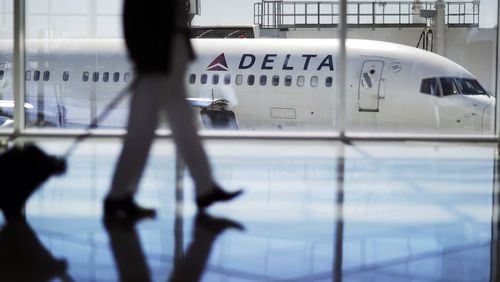Delta Air Lines says it will have a $4.4 billion profit for 2016, despite rising labor costs and weak unit revenue as business travelers pay less for last-minute trips.
That’s close to the $4.5 billion profit Delta reported for 2015. This year, Delta is contending with rising costs due to hefty raises for pilots and other employees, and a slump in unit revenue.
Because of the challenges, “2017 will be a transition year,” Delta CEO Ed Bastian said during the company’s annual investor day, held Thursday in New York. Next year’s rising costs, including an expected increase in fuel prices, will “test the business model” as the company continues efforts to stabilize unit revenue, Bastian said.
So far, stiff industry competition has kept airlines from being able to charge business travelers as much as they have in the past.
“We had the weakest pricing environment in memory in 2016,” Bastian said, though the company still expects to report billions in profits, which amount to $6 billion in pre-tax income.
Delta president Glen Hauenstein said business travelers “were traveling, but they were paying you less.”
Business travel “picked up significantly post-election” in November, Hauenstein said. “It seems like there was a lot of pent-up demand in the market.”
But unit revenue has still been weak year-over-year. In an effort to counter that, Delta is taking a “conservative approach” to its level of flying next year, increasing flying by just 1 percent for 2017. That includes a 2 percent increase in domestic flying and a 1 percent cut in international flying.
Among the biggest reductions are cuts to and from Japan, where Delta has scaled back its hub at Tokyo’s Narita Airport as the closer-in Haneda Airport is opened to more U.S. airline flights. “The market is going to see some very negative numbers here in the next few months,” Hauenstein said.
Instead, flights to China with Delta’s Chinese partner airlines are rising in importance. And Delta plans to migrate its hub flying and establish a closer relationship with Korean Air — which has a hub at Seoul’s Incheon airport — despite challenges with that partnership in the past, according to Bastian.
Also discussed during Delta’s investor day:
- Delta expects to report a $100 million loss on operations at its Pennsylvania refinery for 2016, but said it still benefits from lower fuel costs due to its ownership of the refinery.
- The airline is testing allowing passengers to use SkyMiles to pay fees such as for in-flight wi-fi, unaccompanied minors, pets and change fees.
- At Delta's Atlanta hub, the airline is testing technology for use during thunderstorms when ramp workers must head inside and operations come to a halt, causing delays. At Hartsfield-Jackson, Delta launched a "stoplight" type of system to allow pilots to park aircraft at gates without ground workers, along with an automated jet bridge. It plans to expand use of the system.
About the Author







